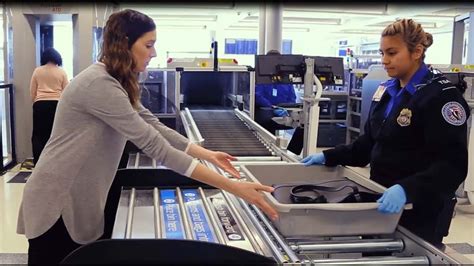
A former nightclub bouncer reveals that observing human behavior in a high-energy, often chaotic environment taught him a crucial lesson: people crave recognition and validation above all else. This insight, gained from years of managing crowds and diffusing tense situations, highlights a fundamental aspect of human psychology often overlooked in everyday interactions.
Working the door of a bustling nightclub provided a unique, up-close perspective on the raw and unfiltered behaviors of individuals seeking a night of entertainment. In an essay published on Yahoo, the anonymous author detailed how his experiences shifted his understanding of human motivations. “I worked as a bouncer at a raucous nightclub for four years,” he wrote, “and it taught me one important thing about people: everyone just wants to be seen.”
The bouncer’s role wasn’t simply about enforcing rules and maintaining order; it was about managing egos, expectations, and the often-heightened emotions fueled by alcohol and the desire for social connection. He observed that seemingly aggressive or entitled behaviors often stemmed from a deeper need to be acknowledged and valued.
The author recounted numerous instances where individuals, initially confrontational or demanding, would completely change their demeanor after receiving a simple acknowledgment or a moment of genuine interaction. He explained, “Whether it was a simple nod, remembering their name, or just actively listening to their complaints, these small gestures often diffused potentially volatile situations.” He further noted that, “The key was making them feel like they weren’t just another face in the crowd.”
This realization led him to understand that many of the conflicts and frustrations he encountered weren’t about the specific rules or policies he was enforcing, but rather about the individual’s feeling of being overlooked or disregarded. He began to consciously employ strategies focused on acknowledging and validating people’s presence and feelings, which proved remarkably effective in de-escalating tensions and fostering a more positive atmosphere.
The insight gleaned from his time as a bouncer extends far beyond the confines of a nightclub. It speaks to a fundamental human need that permeates all aspects of social interaction, from personal relationships to professional settings. Recognizing and addressing this need, the author suggests, can be a powerful tool for building stronger connections, resolving conflicts, and creating a more empathetic and understanding society.
The author details that the lesson learned from his experience is now applied to his daily life outside of his work as a bouncer. “The realization that everyone just wants to be seen has profoundly changed how I interact with people in my everyday life,” he wrote. “Whether it’s a quick conversation with a cashier, a meeting with colleagues, or a heart-to-heart with loved ones, I try to make a conscious effort to actively listen, acknowledge their feelings, and make them feel valued.”
He also noted that the key is “making them feel heard and understood.” This simple act of acknowledgement, he argues, “can make a world of difference in their day and in your relationship.”
The author’s experience highlights the importance of empathy and active listening in navigating social interactions. It suggests that by focusing on the underlying human need for recognition, individuals can foster more positive and productive relationships, both personally and professionally. The ability to see beyond the surface and understand the motivations driving people’s behavior is a valuable skill that can lead to greater understanding and connection in a world often characterized by division and conflict. The bouncer’s insight, born from the unique environment of a nightclub, offers a valuable lesson for anyone seeking to improve their relationships and create a more compassionate world.
Expanding on the Nightclub Environment
The nightclub setting, described as “raucous,” serves as a microcosm of heightened social dynamics. Individuals within this environment are often seeking to escape their daily routines, express themselves freely, and forge connections with others. The presence of alcohol, loud music, and a dense crowd can amplify emotions and inhibitions, leading to behaviors that might not be typical in other contexts.
In this context, the bouncer occupies a position of authority, responsible for maintaining order and ensuring the safety of patrons. This often involves enforcing rules regarding dress code, identification, and behavior. However, the author’s observations suggest that effective crowd management goes beyond simply enforcing regulations. It requires an understanding of the psychological factors driving people’s behavior and the ability to address their underlying needs.
The bouncer’s perspective offers a unique lens through which to examine the dynamics of power and social interaction. By recognizing the human need for validation, he was able to transcend the role of a mere enforcer and become a facilitator of positive social experiences. This shift in approach not only made his job easier but also contributed to a more enjoyable and safer environment for everyone involved.
Psychological Underpinnings
The author’s insight aligns with several key concepts in psychology, including Maslow’s hierarchy of needs and the importance of social recognition in self-esteem and well-being. Maslow’s hierarchy posits that humans have a series of needs that must be met in a specific order, starting with basic physiological needs such as food and shelter, and progressing to safety, love and belonging, esteem, and self-actualization. The need for esteem, which includes both self-esteem and the esteem of others, is a crucial component of psychological well-being.
The author’s observations suggest that even in a seemingly superficial environment like a nightclub, individuals are actively seeking to fulfill their need for esteem. By feeling seen and acknowledged, they experience a sense of validation that contributes to their overall sense of worth. Conversely, feeling ignored or disregarded can lead to feelings of frustration, anger, and a desire to assert oneself in order to regain a sense of control and importance.
This understanding is further supported by research on the psychology of recognition. Studies have shown that feeling valued and appreciated is essential for motivation, engagement, and overall well-being in various contexts, including work, relationships, and community involvement. When individuals feel that their contributions are recognized and that their presence matters, they are more likely to be cooperative, productive, and positive in their interactions with others.
Practical Applications Beyond the Nightclub
The bouncer’s lesson extends far beyond the realm of nightclubs and can be applied to a wide range of social and professional settings. In personal relationships, actively listening to loved ones, acknowledging their feelings, and expressing appreciation for their presence can strengthen bonds and foster a deeper sense of connection. In the workplace, recognizing employees’ contributions, providing constructive feedback, and creating a culture of appreciation can boost morale, improve productivity, and reduce conflict.
In customer service, acknowledging customers’ concerns, actively listening to their complaints, and making them feel heard can transform a negative experience into a positive one. Even in casual interactions with strangers, a simple smile, a friendly greeting, or a genuine compliment can make a significant difference in someone’s day.
The key is to cultivate a mindset of empathy and awareness, recognizing that everyone has a fundamental need to be seen, heard, and valued. By making a conscious effort to acknowledge and validate the people around us, we can create a more positive and supportive environment for ourselves and for others.
The Role of Active Listening
Active listening is a crucial component of the bouncer’s approach. It involves paying attention not only to the words someone is saying but also to their nonverbal cues, such as their tone of voice, body language, and facial expressions. Active listening also requires putting aside one’s own judgments and assumptions and genuinely trying to understand the other person’s perspective.
When someone feels that they are being truly listened to, they are more likely to feel understood and validated. This can help to de-escalate tensions, build trust, and foster a more collaborative environment. Active listening also provides valuable information about the other person’s needs and motivations, which can be used to tailor one’s response in a way that is most helpful and effective.
The Importance of Nonverbal Communication
Nonverbal communication plays a significant role in social interactions, often conveying more meaning than words alone. A simple smile, a nod of the head, or a warm handshake can communicate acceptance, understanding, and respect. Conversely, a frown, a dismissive gesture, or a lack of eye contact can convey disapproval, disinterest, or disrespect.
The bouncer’s ability to use nonverbal cues effectively was likely a key factor in his success. By maintaining a calm and approachable demeanor, making eye contact, and using positive body language, he was able to communicate empathy and reassurance, even in tense situations.
The Power of Remembering Names
Remembering someone’s name is a simple but powerful way to make them feel valued. It shows that you have paid attention to them and that you consider them to be an individual, rather than just another face in the crowd. Using someone’s name in conversation can also help to build rapport and create a more personal connection.
The bouncer’s practice of remembering patrons’ names, even in a busy and crowded environment, demonstrates his commitment to acknowledging their individuality and making them feel seen. This small gesture likely had a significant impact on their experience and contributed to a more positive atmosphere.
Creating a Culture of Recognition
The bouncer’s lesson highlights the importance of creating a culture of recognition in all aspects of life. This involves actively seeking opportunities to acknowledge and validate the people around us, both individually and collectively. In the workplace, this might involve implementing a formal recognition program, providing regular feedback, or simply taking the time to express appreciation for employees’ contributions.
In communities, this might involve celebrating local heroes, organizing events that recognize community achievements, or creating spaces where people can connect and share their stories. By fostering a culture of recognition, we can create a more inclusive, supportive, and empowering environment for everyone.
Addressing Potential Misinterpretations
It is important to note that the bouncer’s lesson should not be interpreted as advocating for pandering to unreasonable demands or condoning inappropriate behavior. While it is important to acknowledge and validate people’s feelings, it is also essential to maintain boundaries and enforce rules when necessary.
The key is to strike a balance between empathy and firmness, recognizing that individuals may be acting out due to unmet needs but that their behavior still needs to be addressed in a responsible and respectful manner. This requires a nuanced approach that takes into account the specific context and the individual’s motivations, while also upholding the principles of fairness and safety.
Conclusion
The former nightclub bouncer’s revelation that “everyone just wants to be seen” offers a profound insight into human nature and the importance of recognition in social interactions. His experiences in a high-energy, often chaotic environment highlight the fundamental human need for validation and the power of empathy in de-escalating tensions and building connections.
By actively listening to others, acknowledging their feelings, and making them feel valued, we can create a more positive and supportive environment for ourselves and for those around us. This simple but profound lesson can be applied to a wide range of settings, from personal relationships to professional environments, and can contribute to a more compassionate and understanding world. The bouncer’s story serves as a reminder that even in the most challenging circumstances, recognizing the humanity in others can be a powerful force for good. Frequently Asked Questions (FAQ)
1. What is the main point of the article?
The main point is that a former nightclub bouncer learned through his experiences that people have a deep-seated need to be seen and acknowledged. He discovered that by recognizing this need, he could de-escalate conflicts and foster better interactions, a lesson applicable far beyond the nightclub setting.
2. How did the author learn this lesson?
The author learned this lesson through his work as a bouncer in a “raucous” nightclub. He observed that many people’s confrontational or demanding behaviors stemmed from a desire to be recognized. He found that simple acts of acknowledgement, like remembering names or actively listening, could diffuse tense situations.
3. What are some examples of how this lesson can be applied outside of a nightclub?
This lesson can be applied in various settings, including:
- Personal Relationships: Actively listening to loved ones and acknowledging their feelings.
- Workplace: Recognizing employees’ contributions and providing constructive feedback.
- Customer Service: Acknowledging customer concerns and making them feel heard.
- Casual Interactions: Offering a friendly greeting or a genuine compliment to strangers.
4. What psychological concepts support the author’s observations?
The author’s observations are supported by psychological concepts such as:
- Maslow’s Hierarchy of Needs: Which emphasizes the importance of esteem (self-esteem and the esteem of others) for psychological well-being.
- The Psychology of Recognition: Which demonstrates that feeling valued and appreciated is essential for motivation, engagement, and overall well-being.
5. Is the article suggesting that you should always give in to people’s demands?
No, the article is not suggesting that you should always give in to people’s demands or condone inappropriate behavior. It emphasizes the importance of balancing empathy with firmness, maintaining boundaries, and enforcing rules when necessary. The key is to address people’s underlying need for recognition while still upholding principles of fairness and safety.









